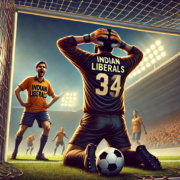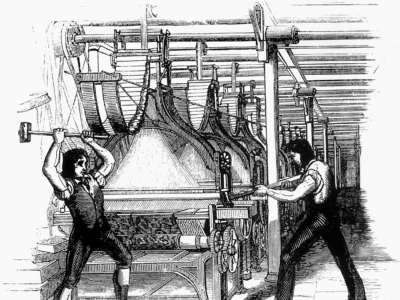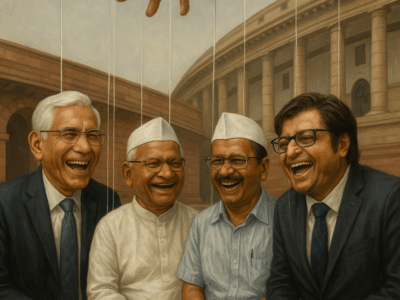13 February 2025
Pune, India.
To,
Justice Bhushan Ramkrishna Gavai
Supreme Court of India
New Delhi, India.
Subject: An appeal for you to change your mind.
Respected Justice Gavai,
I write to you not merely as a concerned citizen but as someone who believes that the power of logic, evidence, and constitutional principles must prevail over anecdotal generalisations. I was deeply troubled by your remarks during the hearing of a PIL seeking shelter for the urban homeless in Delhi. You expressed concerns that distributing freebies before elections may be creating a “class of parasites” rather than integrating the homeless into mainstream society so they can contribute to the nation.
Your supporting argument?
“I come from an agricultural family. Because of the freebies in Maharashtra, which they just announced prior to elections, the agriculturists are not getting labourers. Everybody is getting free at home.”
Your Honour, if science were done by anecdotes, verdicts would go to the best storyteller, not the truth. There is a reason our national motto is Satyameva Jayate (truth alone triumphs) and not Kathameva Jayate (the best anecdote wins).
Your statements contradict three fundamental truths:
- Evidence – the scientific process
- Equity – the Indian Constitution
- Evolution – natural selection
Let us take them one by one.
I. Evidence: Science Is Not Built on Anecdotes
The research is clear. Welfare programmes do not create idlers. If anything has been consistently linked to an unwillingness to work, it is inherited wealth. Not exactly the ‘freebie’ you were thinking of, was it?
There are decades of studies, from Roosevelt’s New Deal to today’s social security nets, proving that welfare increases people’s ability to find and retain work. The idea that welfare makes people lazy is an oft-repeated but thoroughly debunked myth.
Of course, you do not have to take my word for it. Studies from the United States, Europe, Japan, and India’s very own MGNREGA show that the idea of “poor because lazy” is a statistical anomaly compared to “poor because unfair society.” None of this should be surprising. It is not even counterintuitive. You can Google it. I will generously allow you to exercise your right to labour by not offering you free information. I trust you understand.
And to argue that the once subservient farm labour back in your village is now demanding more money to do the menial work they once did for a pittance before the government gave them enough to afford a veneer of dignity and self-worth? Well, that is a tragic inconvenience for those who preferred their poverty meek, silent, and cheap. Surely, that is not you, Sir.
II. Equity: The Constitution Is Very Clear, Sir.
The Indian Constitution guarantees equal protection for every citizen. Yet you, Sir, suggest that only the “useful” deserve support. Who decides who is useful? This is not policy. This is dystopian fiction.
Welfare is not a handout. It is an investment. It upholds dignity, justice, and common decency. It lifts people out of despair. Denying it is like saying only the strong deserve to survive. That logic does not belong in a modern society. It belongs in a poorly written supervillain monologue.
I assume that, as a judge of the Supreme Court and the son of R.S. Gavai, a staunch Ambedkarite and founder of the Republican Party of India (Gavai), you are well aware of the constitutional guarantees of fraternity, social justice, and equality. The very document you have sworn to uphold places dignity over mere economic output.
By your logic, only those who contribute to the economy deserve state support. That the wealthier you are, the more deserving of the nation’s resources you should be. Sir, that is feudalism.
Dr Manmohan Singh, the architect of modern India’s economic liberalisation, famously said that the dispossessed must have “…the first claim on resources.” Are you suggesting Dr Singh did not understand how economies work? Or do you believe welfare is a flawed concept, except, of course, when it benefits those already in power?
III. Evolution: Cooperation, Not Isolation, Built Civilisation
Humans sit at the top of the food chain. Not because we are the strongest or the fastest. Not because of our claws or our fangs. But because of one singular trait: our ability to work together.
We survived because we built societies. We thrived because we formed communities. We ruled the world because we learnt to cooperate in large groups over long distances across generations.
Imagine a world where everyone fended for themselves. No shared infrastructure. No mutual aid. No institutions. No families. We would still be scattered bands of loners, cowering in caves, waiting for the next predator to pick us off.
Welfare programmes are an extension of that cooperation. They let people catch their breath, recover, and rejoin the workforce. They create stability. They allow societies to take everyone along.
By your logic, we should be culling the weak, the slow, the old, and the infirm. We should be shunning the disabled, the sick, and the poor. We should be returning to a world where only the physically strong deserve to live. Surely, you didn’t mean that.
Sir, human societies have tried this approach throughout history. It has failed. Every. Single. Time.
IV. The Irony: You Benefited from the Very System You Now Dismiss
You are 64, Your Honour. You grew up in the India of the 1960s and 70s, studied in the 80s, rose in the 90s, and reached the peak of your career in the 21st century. During your formative years, you enjoyed subsidised education, healthcare, housing, water, power, and infrastructure. At the very least. You benefitted from government programmes that ensured that talent, not just privilege, could rise to the top.
You are not where you are just because of your hard work and intelligence. You are also here because of collective support. Our collective support. What is true for you is true for me. And a billion other people in this country.
So, if government support turns people into parasites, is that to mean that you consider all of us, including yourself, as parasites too? Of course not. It would be absurd to label us all in that way. But would you not agree that it would be just as absurd to call those in need, and rightly expecting their government to come to their aid, as parasites.
Every person receiving welfare today has the potential to be a future Justice Gavai. If given the chance, the same chance you had. The same chance that built the nation you now serve.
To denounce welfare is to denounce your own journey. It is to deny others the very opportunities that helped you succeed. It is, in the grandest of ironies, a betrayal of your own past.
Conclusion: The Real Joke Is Ignoring the Power of Collective Support
In the grand theatre of civilisation, the real joke is pretending that collective support is a weakness. It is the punchline of our progress. Without it, our survival, growth, and prosperity would be nothing but a pipe dream.
Welfare does not breed laziness. It breeds possibility. It creates a society that works together. And that, ultimately, is the secret of human success.
You, of all people, should know this. You are a Supreme Court judge. A man of wisdom. A man of intellect. A man of the law. Surely, you can think beyond the WhatsApp-forwards’ logic of “freebies make people lazy.”
You, of all the people, from where you sit, have the power to change the narrative. I hope you use it responsibly.
With the most respectful regards,
Kedar Anil Gadgil

















